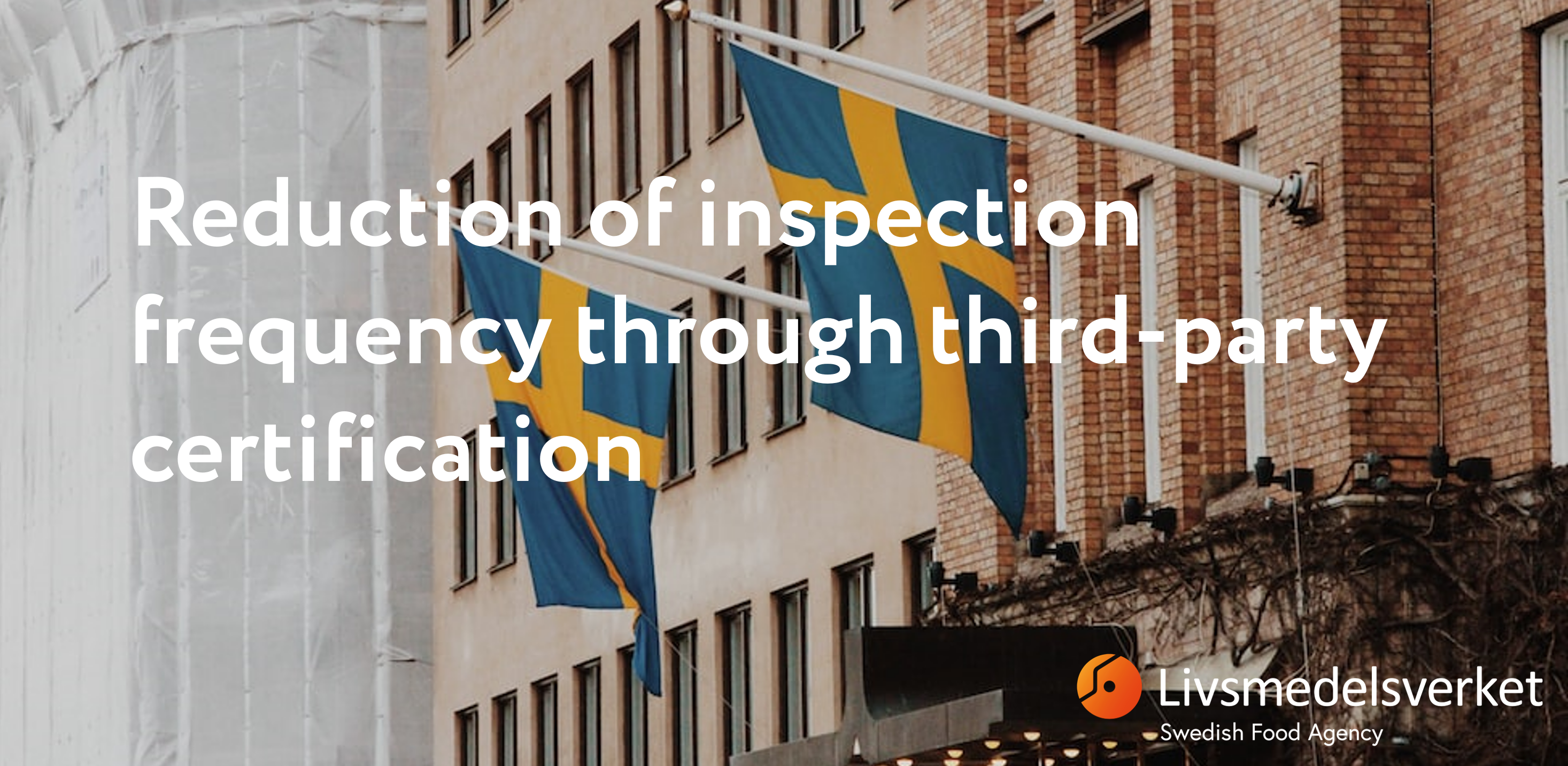Livsmedelsverket, The Swedish Food Agency, is the competent authority responsible for the supervision and enforcement of food safety regulations. It works to ensure that food produced, sold and served in Sweden is safe and authentic. The Agency's work is knowledge-based with policy-making based on a scientific basis that is independent of special interests.
The Agency has introduced a new risk classification model for assessing how much public control a company in the food sector should receive. They do this by identifying and assessing the greatest risks and adapting the level of control based on their risk profile. The new model takes into account the interplay between regulations and certification, recognising that independent third-party certification can result in improved compliance, and therefore a means to ensure that food manufactured into the market in Sweden is safe for consumers. This model recognises that food businesses with BRCGS certification in place represent a lower risk and are therefore subject to less regulatory interventions and inspections.
As it applies throughout the EU, it is the responsibility of food companies to comply with legislation and ensure that the food they handle, sell and produce is safe for consumers. In addition, the companies are responsible for making sure that consumers receive the information about food that the legislation requires. The responsibility for monitoring that businesses comply is shared between Livsmedelsverket, county administrations and municipalities.
Livsmedelsverket controls certain major food industries, egg packers and dairies, fish product plants, certain beverage manufacturers and the handling of food on trains and planes, as well as all slaughterhouses and game handling facilities.
The new model recognises the BRCGS Food Safety, Agents and Brokers, and Storage and Distribution Standards. They meet the agency requirements to qualify for reduction of official control as they have a focus on food safety and hygiene, and that they are covered by accreditation. The benefit for food operators certified to one of these standards is that they will qualify as a reduced risk and be subject to a lower level of control during the five-year inspection cycle. This will save time in terms of freeing up resource for the inspection, as well as cost reduction in the form of paying for fewer inspections.
This recognition builds on work carried out by NVWA, the Dutch Food Safety Regulator, that found that businesses with BRCGS certification demonstrated greater compliance with regulation, and were therefore subject to less regulatory intervention.
Further information about BRCGS’s recognition and the Agency’s risk model can be found on Livsmedelsverket’s website.
